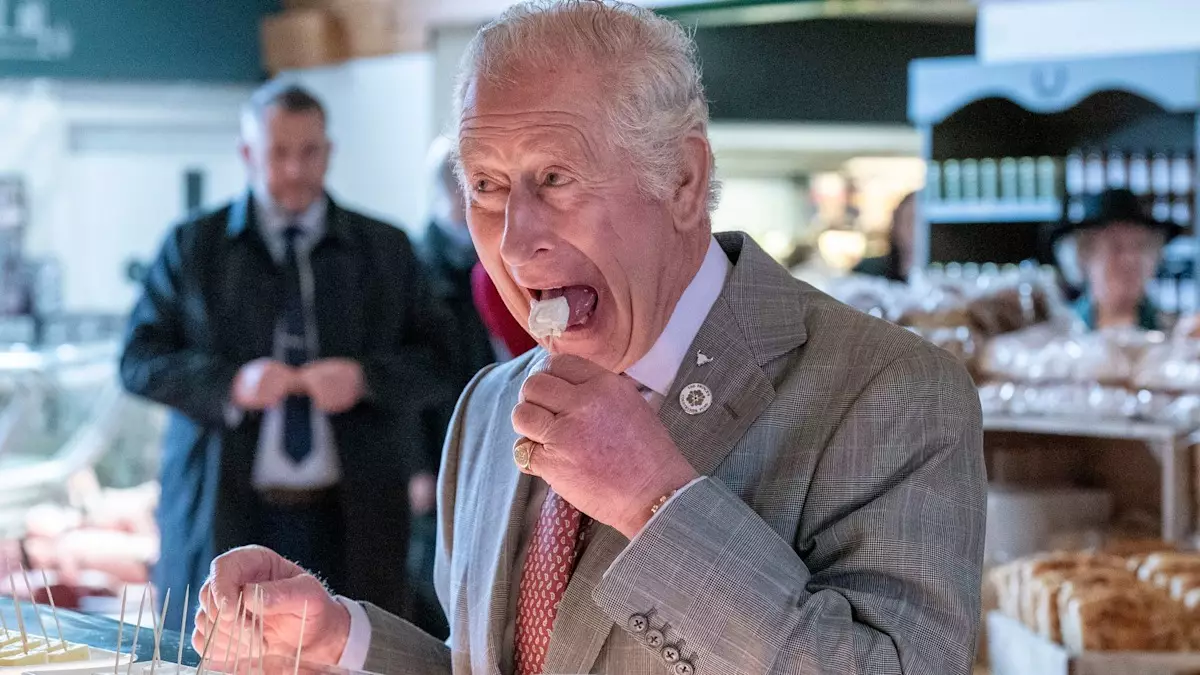Easter Sunday has been a significant event in the royal household, steeped in tradition and familial warmth. As generations pass, the royal family’s observance of this holy day continues to symbolize their connection to both faith and heritage. From Queen Victoria’s cherished Easter egg hunts that delighted her children to the modern-day celebration, where the royals gather at St. George’s Chapel in Windsor Castle, the day transcends mere routine, embodying joy and unity. This occasion illustrates not only a commitment to faith but also the values of togetherness that define the monarchy’s ethos.
The essence of Easter in the royal calendar is not complete without the centerpiece: a sumptuous feast. For the royal family, this day presents a rare opportunity to come together for a meal, integrating both culinary tradition and familial bonding. Dining, typically a private affair within the royal realm, allows insight into the delightful culinary sketches painted by royal chefs throughout the years.
The Culinary Legacy of Easter
While the precise details of the royal Easter menu remain closely guarded, former royal chef Darren McGrady has shed some light through his accounts. Central to the Easter feast is a beautifully roasted lamb—a culinary homage that carries significant symbolism within Christianity. The lamb represents not merely a sumptuous meal but also invokes reflections on the “sacrificial lamb,” a powerful emblem of faith and redemption.
In royal tradition, Queen Elizabeth II had first choice of the roast, preferring it well-cooked, showcasing how personal preferences can influence culinary decisions even at the highest echelon of society. Following the lamb, the royals are treated to a selection of cheese and fruits, often featuring the local Windsor Cheese, renowned for its distinct flavors. Windsor peaches, cultivated on the estate, serve as a fitting and elegant dessert, encapsulating the freshness of springtime.
The culinary experience doesn’t end at the dinner table. As McGrady noted, Easter afternoons in the royal household featured a delightful selection of hot cross buns—an additional nod to tradition—as well as an indulgent assortment of chocolate eggs, ensuring sweetness permeated through the day. It is engaging to note the contrast between the late Queen, who delighted in chocolate confections, and King Charles, a self-proclaimed chocolate skeptic. This divergence captures a unique slice of personality within the family dynamics.
The Intracacies of Royal Dining
King Charles III, known for his unconventional eating habits, notably abstains from lunch—a peculiarity that has sparked curiosity. Despite this, invitations to partake in a lavish Easter meal are met with enthusiasm; McGrady affirmed that the King truly relishes the lamb. This anticipation reflects how special occasions can allow for a break from routine, providing a sense of normalcy amidst royal responsibilities.
In family celebrations, the younger generation plays an integral role. Prince William and Princess Kate have embraced Easter traditions by hosting egg hunts for their children, Prince George, Princess Charlotte, and Prince Louis. The children’s enjoyment of these activities speaks volumes about the importance of nurturing familial bonds and the tradition of joy that permeates the royal household. However, 2024 marked a deviation from the norm, as Kate underwent treatment, suggesting that even royals face real-life challenges that affect their cherished traditions.
The Heart of Royal Traditions
The royal Easter observance demonstrates a blend of ceremonial duty and familial connection, carving an atmosphere rich in reflection and joy. While the world outside may change, these rituals remain vital to upholding a sense of continuity and belonging. As royals share their traditions with the world, they also remind observers of the beauty embedded in family gatherings, whether through shared meals, laughter, or the enthusiastic celebration of childhood innocence.
As the royal family prepares for the upcoming Easter, the anticipation is palpable—a blend of culinary delights, cherished rituals, and the opportunity to honor long-standing family traditions. It is a moment that encapsulates not only the essence of faith but also the heartwarming bonds of family that elevate this day into a truly exceptional occasion. Such elements reinforce why Easter holds a prominent place in the royal calendar, resonating deeply with historical context and contemporary familial affection.

